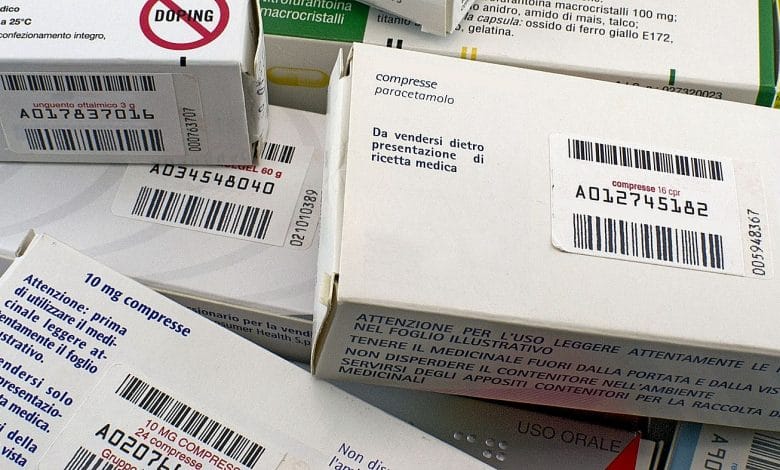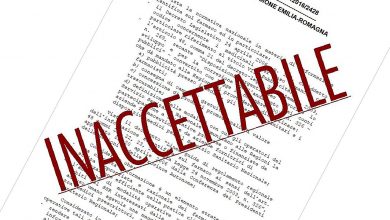
Problems with the glue, the State Polygraph cannot print them. "Medicine supplies at risk"
Of Mario Sensini – 7 April 2015 – CORRIERE DELLA SERA ROME/CHRONICLE
 ROME – Even the latest reels to arrive from the Foggia plant are defective. The three-layer adhesive paper peels off, and it will be impossible to use it to print the stamps that are applied to the boxes of medicines before they are placed on the market. The Istituto Poligrafico dello Stato, entitled to production by law, has already accumulated an enormous delay: seventy million stamps, equivalent to as many boxes of medicines languishing in the manufacturers' plants. And the situation, also considering the paper incident, does not seem destined to improve quickly.
ROME – Even the latest reels to arrive from the Foggia plant are defective. The three-layer adhesive paper peels off, and it will be impossible to use it to print the stamps that are applied to the boxes of medicines before they are placed on the market. The Istituto Poligrafico dello Stato, entitled to production by law, has already accumulated an enormous delay: seventy million stamps, equivalent to as many boxes of medicines languishing in the manufacturers' plants. And the situation, also considering the paper incident, does not seem destined to improve quickly.
Medicines at risk
Farmindustria is very worried. «Manufacturers continue to report problems, even serious ones, with the supply of stamps. If this goes on, sooner or later patients will have difficulty finding medicines in pharmacies» says the president, Massimo Scaccabarozzi. "The Poligrafico - he adds - has undertaken to recover as soon as possible, in these first days of April, at least on emergencies". In practice, medicines are being selected to be sent to the market first. «We give priority to life-saving drugs, but antibiotics, anticoagulants, insulin are also needed every day... It is a regrettable situation, we hope that Poligrafico will resolve it as soon as possible» says Scaccabarozzi.
External procurement
L a defective card is a serious problem, but the real problem is another. Normally Poligrafico, which to all intents and purposes has remained the only manufacturing company wholly controlled by the State, produces only a part of the 2.3 billion pharmaceutical stamps that are printed every year. About a quarter. The rest of the production is contracted out to external 'fiduciary' printers through a tender. The market, considering the extreme sophistication of the printing machines, which in practice are all prototypes, is very limited. But competitive. A roll of a thousand stamps is sold by Poligrafico to pharmaceutical companies for 26 euros. According to internal sources, the institute would cost about 18 euros to produce. But the three external companies that won the last tender (5.2 billion stamps) prevailed by offering far lower prices: one 13.6 euros, another 12.4, the third just 9. Half the internal production cost of the Poligrafico.
a defective card is a serious problem, but the real problem is another. Normally Poligrafico, which to all intents and purposes has remained the only manufacturing company wholly controlled by the State, produces only a part of the 2.3 billion pharmaceutical stamps that are printed every year. About a quarter. The rest of the production is contracted out to external 'fiduciary' printers through a tender. The market, considering the extreme sophistication of the printing machines, which in practice are all prototypes, is very limited. But competitive. A roll of a thousand stamps is sold by Poligrafico to pharmaceutical companies for 26 euros. According to internal sources, the institute would cost about 18 euros to produce. But the three external companies that won the last tender (5.2 billion stamps) prevailed by offering far lower prices: one 13.6 euros, another 12.4, the third just 9. Half the internal production cost of the Poligrafico.
The choice of the polygraph
The contract with the three firms expired earlier this year. Already towards the end of last year, however, Poligrafico, led by the managing director Paolo Aielli, had decided, surprisingly, to transfer all the production of stickers in-house. The new printing machines were immediately purchased to meet the greater production needs, with a cost of at least eleven million euros. These, however, will only be delivered in the coming months. The fleet of machines to support the entire production of pharmaceutical brands, including installation, testing and running-in, should only be fully operational in the late summer. And who knows, incidentally, how much this fleet of machines will work, given that the stamp is destined to change, if only for the diffusion of the electronic prescription, if not to disappear altogether.
The emergency
 In the meantime, the stamps that are needed today are almost finished. Poligrafico cannot keep up with the needs of the market. And a new call for tenders for the supply of another 800 million cash on receipts which, given the foreseeable difficulties, was supposed to be done at the beginning of the year has been cancelled. Plus there are paper issues. It is not the first time that the Institute runs into production problems of this kind. With stamps, as with vehicle plates, another «exclusive». At the beginning of 2015, in many provinces, tens of thousands of new cars, lacking registration plates, had to wait weeks for registration.
In the meantime, the stamps that are needed today are almost finished. Poligrafico cannot keep up with the needs of the market. And a new call for tenders for the supply of another 800 million cash on receipts which, given the foreseeable difficulties, was supposed to be done at the beginning of the year has been cancelled. Plus there are paper issues. It is not the first time that the Institute runs into production problems of this kind. With stamps, as with vehicle plates, another «exclusive». At the beginning of 2015, in many provinces, tens of thousands of new cars, lacking registration plates, had to wait weeks for registration.





